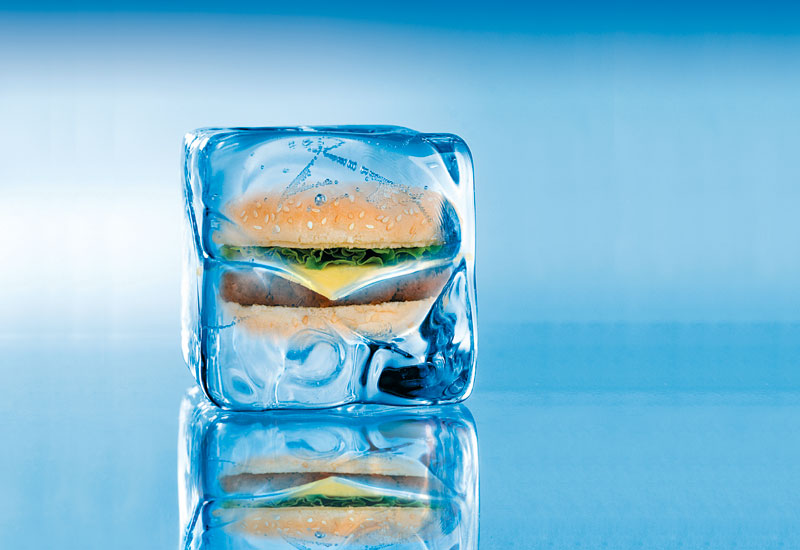Chefs are required to keep food budgets in line and meet shifting demands from customers — as a result frozen food products have helped kitchens save time, while offering a cheap, quick source of ingredients. Ben Watts speaks to chefs and ingredient suppliers to find out why demand for frozen food is heating up
Despite the assumption that ‘fresh is best’, chefs across the region have been turning to frozen food more often in recent months, according
to suppliers.
Freshly Frozen Foods general manager Densil Quadros reports that demand for frozen products is on the up across the region.
“It has increased due to a rise in the price for fresh products,” explains Quadros. “Frozen food products can be kept safely for long periods of time without deterioration in taste and quality, and we are able to make our foods available to customers regardless of the season or geographical location.
“People call frozen foods ‘the recession food’ because it’s economical,” he adds.
“As consumers tighten their belts during this tough time, people are tending to stock up on cheaper and longer-lasting frozen foods rather than buying fresh foods, which could end up being wasted.”
And Quadros says the findings of economists suggest the frozen food market will continue to stay afloat, even when the fragile global economy begins to recover.
Despite Quadros’s positive assessment, Federal Foods marketing support manager Jiji Mathews says that frozen food market has recently suffered from instability.
Mathews explains: “This is due to a natural decline in crop and yield in various parts of the world, as well as production cuts due to a decline in price, which led to a very unstable trend in food imports.
“Price fluctuations on frozen products, however, are much lower compared to fresh ones,” he notes. “The technology used these days also ensures better control of hygiene in frozen food.
“Price is a major factor in a chef’s decision to choose frozen food, as is convenience. It is available 12 months of the year and seasonality does not affect the availability,” he adds.

Advertisement
Mathews points out that frozen food items can offer an advantage to busy chefs, as products are often better calibrated in terms of their size, with natural yield or catch not affecting the size, weight or count.
Chefs in the Middle East are also embracing the modern technology and logistics used to store and transport a wide range of frozen food items to the region.
Aloft Abu Dhabi executive chef Todd Hunter notes: “With ‘Individually Quick Frozen’ technology available, turning something fresh into something frozen has come a long way since my mother was putting products in the freezer.
“With the challenge of transporting some fresh produce still yielding frustrating results, it is usually safer and less expensive to find good, well-maintained frozen products that are readily available on the market.
“We are witnessing a trend of diners moving away from eating very expensive fine-dining meals to more reasonable options. No one is forced to exclusively purchase products frozen and you can still produce a memorable dish by keeping this in mind,” he says.
Fresh or frozen?
As Sheraton Deira executive chef Susy Massetti points out, “most of the fresh products present on the Middle East market are sourced from abroad and are often harvested before they are ready”.
“In many instances fruits and vegetables are tasteless,” claims Massetti. “They look good, but that’s where it ends. Depending on the type of preparation used, frozen items can be a better choice as the flavour is more intact and the nutritional value is higher.”
Aloft’s Hunter adds: “Sometimes frozen products can be better in the Middle East region. For instance, you can buy live Alaskan king crab, but by the time it gets to your kitchen it has been out of its normal surroundings for quite some time and this affects everything about the product.”
Often economic factors come into the equation when chefs are faced with purchasing dilemmas.
Sheraton’s Massetti notes: “Like everyone else we face very tough competition and budget restrictions — frozen items are definitely a convenient and less expensive solution.
“Practicality, quality and flavour all come into play as well. If there is a negative side effect it is that a lot of the frozen items have a very recognisable shape — although on many occasions guests do not realise that we have been using frozen items.”









 Search our database of more than 2,700 industry companies
Search our database of more than 2,700 industry companies









